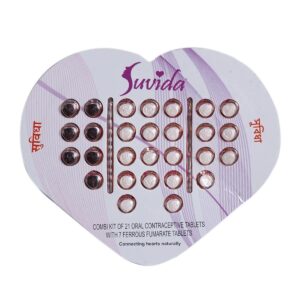LEVONORGESTREL
LEVONORGESTREL: Levonorgestrel is a synthetic progestin hormone commonly used as an emergency contraceptive, marketed under various brand names including Plan B, Next Choice, and Take Action. It is also used in some long-term contraceptive methods such as intrauterine devices (IUDs).
The primary use of levonorgestrel is for emergency contraception, often referred to as the “morning-after pill.” It is used to prevent pregnancy after unprotected intercourse or contraceptive failure, such as a broken condom or missed birth control pills. It is most effective when taken as soon as possible after intercourse, ideally within 72 hours but can be used up to 120 hours (5 days) afterward.
The mechanism of action of levonorgestrel in emergency contraception is not fully understood. It is believed to primarily work by inhibiting or delaying ovulation, preventing the release of an egg from the ovary. However, it may also alter the cervical mucus consistency, making it more difficult for sperm to reach the egg or impairing implantation of a fertilized egg in the uterus if ovulation has already occurred.
The typical dose of levonorgestrel for emergency contraception is a single tablet containing 1.5 milligrams (mg) taken orally as soon as possible after unprotected intercourse. Some brands may have different dosages, so it is essential to follow the specific instructions provided by the manufacturer or healthcare provider.
Common side effects of levonorgestrel include nausea, vomiting, fatigue, headache, breast tenderness, and irregular bleeding or spotting. These side effects are usually mild and go away on their own. Levonorgestrel should not be used as a regular form of contraception and is not intended to replace other reliable birth control methods.
It is important to note that levonorgestrel is not effective in terminating an existing pregnancy, and it should not be used as an abortion pill. It is solely intended for emergency contraception purposes. Individuals who experience severe abdominal pain, persistent vomiting, or heavy vaginal bleeding after taking levonorgestrel should seek medical attention, as these symptoms could indicate a pregnancy outside the uterus (ectopic pregnancy) or other underlying health issues.

